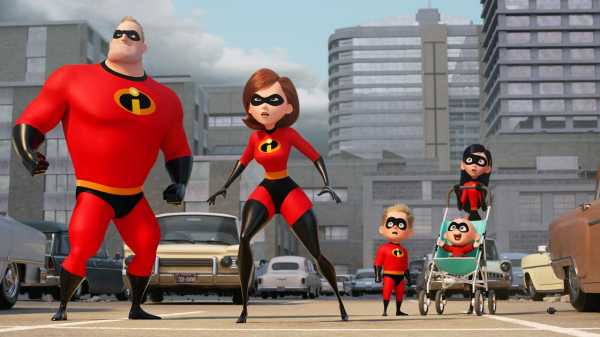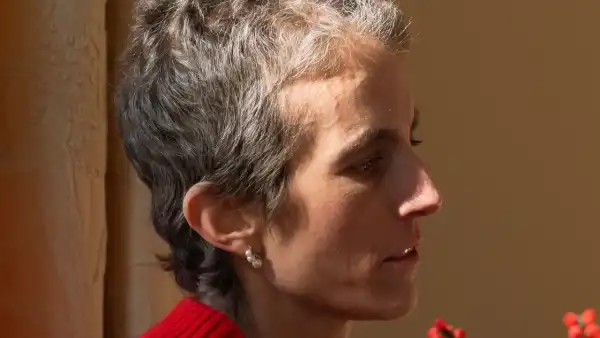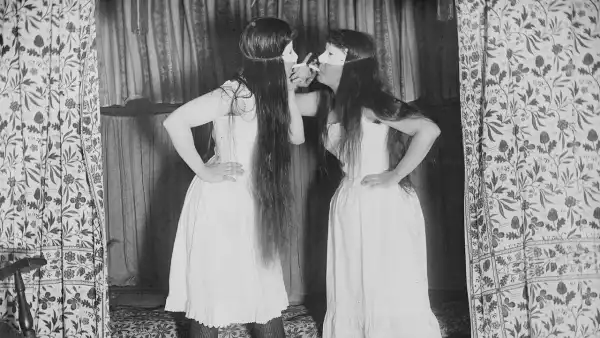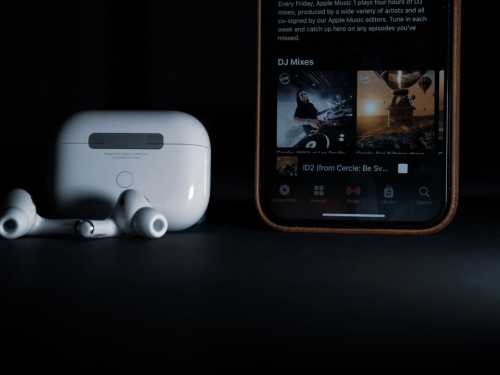
As a rule, any marriage in which one partner can willingly cry out to the other, “Trampoline me!,” inspires only envy and awe. In the heat of the action, that is what Mr. Incredible says to Mrs. Incredible, in “Incredibles 2,” and I’m disappointed to report that the action in question is merely the manic pursuit of a gigantic drill that is whirring through a crowded city and demolishing everything in its path, rather than a lazy afternoon in the marital boudoir with the door discreetly shut.
The reason that Mrs. Incredible—Helen to her friends—can love, cherish, and trampoline her husband, the brawny Bob, is because she is also, praise the Lord, Elastigirl. He is strong and she is stretchy; he is no more vexed by being pummelled by rocks than he would be by stubbing his toe, and she can flatten herself into a human pancake or, though normally waspish of waist, spread her torso into a handy parachute. In short, the perfect couple. It is fourteen years, would you believe, since we first made their acquaintance, in “The Incredibles,” one of the high spots in the history of Pixar, and now the writer and director of that delectable movie, Brad Bird, has returned with a second helping.
It begins pretty much where the previous one left off, as if the characters had merely been staying put and holding their breath. Their voices, too, are mostly unchanged: Holly Hunter is still the shrewd and resourceful Helen, Craig T. Nelson is still Bob, with his lumbering sigh, and Sarah Vowell, as their daughter Violet, still provides the pitch and yaw of adolescent speech—now tetchy, now timid, but touched here and there with a determination that might just save the day. (Her specialty is to vanish at will, or to shield herself inside an invincible bubble: every teen-ager’s dream.) Only the sound of the elder son, the high-speed Dash, has been updated; his lines are now spoken, I rejoice to say, by a young actor named Huckleberry Milner. It’s ideal for Dash, whose permanent aim is to race around the river bend, as it were, and see what adventures await.
There is also Jack-Jack, the baby, about whom (and this is a typically smart piece of narrative engineering from Bird) we already know more than his family does. That’s because they weren’t watching when, at the end of “The Incredibles,” he burst into flames—all too much for the baddie who was trying to abduct him at the time, and who found him too hot to handle. It takes the rest of the Incredibles more than half the film to discover that their youngest member is super-powered, too, although whether Jack-Jack is possessed of or by his powers is open to debate. These appear to be endless. He can, when irate, become an empurpled and diabolical troll; his sneezes rocket him vertically through the ceiling; his eyes fire lasers, either in a steady beam or, if required, in pulsing jets; and he can go forth and multiply, producing an instant brood of himself, with an audible pop, not unlike Olaf, the auto-dismantling snowman, in Disney’s “Frozen.” There’s even a scene in which Jack-Jack swells into a bulbous mega-baby, for no perceptible reason. At this point, to my horror, I began to have doubts about the film.
These did not come easily. My attitude to “The Incredibles,” upon its release, resembled that of an ancient Egyptian toward the sun god, Ra, and it has barely dimmed in the interim. It was with fear and trembling, therefore, that I looked ahead to the second coming. Would Bird be able to sustain the fast, angular moves of the first—the near-geometric nicety with which Frozone (Samuel L. Jackson), Bob’s skating super-pal, charted his ice-cool vectors across the screen? And would he still sport his clinging turtleneck? In terms of design, would the new movie maintain the dazzling concatenation of the first, in which the space-age made beautiful music with the retro? Would the sequel, like the original, so bewitch us with its levity, its easeful spin, and the snap of its colors that we might begin to imagine, for a couple of hours, what it would feel like to live inside an Alexander Calder mobile?
You bet. Once Michael Giacchino’s score—his best and most excitable—was up and running, I was happy and hooked. (Make sure you stick around for the whole of the final credits, in the course of which he spoils us with riff after riff, including one that gets deep, and deeper still, into the Frozone groove.) And, once Helen was called upon to halt a runaway monorail, I was able to relax, in the confidence that “Incredibles 2,” like all the best Pixar projects, had been constructed with the customary flair and care. Let’s face it: life without a monorail, in movies like these, would be frankly unendurable. The vision that they project, bright with kinetic wit, is also shaded, here and there, with historical regret. They show us what the past hoped the future might be.
That is why the old-style telephones, with receivers, or the shop window filled with boxy brown televisions can coexist with the scarlet electric motorbike that Helen mounts, or the airplane that unlocks from the body of a hydrofoil and takes wing. And that is why the Incredibles start the film in a motel room, eating Chinese takeout, and are soon transplanted into a cavernous lair that juts out from a sylvan hillside. It is graced by the ghosts not only of Frank Lloyd Wright but of Cary Grant, too, who clung to a similar structure, in “North by Northwest,” and listened to Martin Landau and James Mason enjoy a quiet word. What Bird has managed to do, with a couple of kids’ cartoons, is to revive the modernist thrill.
Second time around, we get the sexual politics to match. Things are tough for the Incredibles, as the story kicks off, with superheroes fallen from public favor. (They make too much mess, apparently, leaving the city with an unpopular repair bill. Was the same sort of argument not aired in “Spider-Man: Homecoming,” last year?) The corollary, as Bob and Helen agree, is that, “One of us has to get a job.” Guess who. Smarter, smaller, more rubbery, and guaranteed to cause less collateral damage, Helen is the obvious choice. She is picked by Winston Deavor (Bob Odenkirk), a gratingly upbeat tech magnate, and his more languid sister Evelyn (Catherine Keener) to battle crime, and, no less crucial, to be seen to battle crime. Innumerable cameras, at his command, will insure that Helen’s exploits become common knowledge of the most gratifying type. So that’s what superheroes were lacking: good P.R.
Bob, in the meantime, stays home with the kids. You can predict what’s going to happen, but it’s fun, nonetheless, to witness the curve of his learning, as he finds out, to his exhausting cost, that childcare is not the breeze that he and many other men presume. So multifarious are its demands, indeed, that only by being as flexible as his wife could he fulfill them all. He must master afresh the delights of math. He must read supposedly soporific books to an infant who gives every sign of eternal wakefulness. He must try not to implode when his grouchy daughter instructs him to go away. He must become, in short, Elastiboy. Fat chance.
Helen has larger troubles to contend with, namely the presence of a darksome being called the Screenslaver, whose plan is to transform upstanding citizens into staring zombies by hypnosis, and who seems, from his vocabulary, to have swallowed his regulation dose of Noam Chomsky, Jean Baudrillard, and other prophets of our alienated gloom. (“You don’t talk, you watch talk shows,” and so on.) Also on hand is a bunch of other superheroes, whom Winston wants to beckon out of semi-retirement, but who lack the charm—and the forthrightness—of Helen, Bob, and the gang. Thus, we are introduced to figures such as Void, Screech, and the indelicate Reflux, whose party trick is to disgorge what can only be construed as a lava barf. What’s the deal here? Observing these dorky mutants, I wondered whether Bird, the most mischievous of Pixar’s directors, has taken the opportunity both to match and to mock the “X-Men” saga, with its frowning array of the strangely gifted. Not before time. In the same vein, the merry havoc on the secret island in “The Incredibles” made it more difficult than ever to take seriously those eruptive scenes in which James Bond confronts his latest nemesis and, for good measure, blows shit up.
Not that “Incredibles 2” is solemnity-free. There are quite a few discussions of what it means to be heroic, to be married, to share responsibilities, and so forth, and we are asked to recall an era in which people “would do something good just because it’s right.” That tint of ethical nostalgia is reminiscent of Spielberg, in his “Bridge of Spies” mode, and it consorts neatly with the decor of the new film. Yet I was reminded, in the process, of the cultural events that have intervened between “The Incredibles” and its equally zippy successor. First came “Mad Men,” which boasted its own range of period accoutrements, but which choked our yearning for the suits, the smokes, the frocks, the whiskey tumblers, the Sinatra albums, and the rest of the gear by reminding us of the society that they once adorned, with its oppressions both casual and institutional, and its half-concealed despairs. “Incredibles 2” can scarcely own up to those, not with young children in the audience, but what it can do, even without stating the dilemma, is to offer a solution. Hence the sight of Helen, accelerating off to work, away from her justly abandoned man, in her black mask, her long tall boots, and her empowering outfit, as tight as a second skin.
Which bring us to the other event. Take your seat at any early-evening screening of “Incredibles 2” in the coming days, listen carefully, and you may just hear a shifty sound, as of parents squirming awkwardly beside their enraptured offspring. And why, kids? Because Mommy just leaned over to Daddy and whispered, “Is it just me, or does Mrs. Incredible kind of look like Anastasia in ‘Fifty Shades of Grey?’ You know, the girl in the Red Room, with the whips and all?” And Daddy just rested his cooling soda firmly in his lap and, like Mr. Incredible, tried very hard to think of algebra. As for how Daddy will react later on, during the scene in which Helen and the husky-voiced Evelyn unwind and simply talk, woman to woman, I hate to think, but watch out for flying popcorn.
So, with all these joys in attendance, how come “Incredibles 2” delivers less of a punch than we received fourteen years ago? Maybe that was bound to be the case. The second punch may be thrown with equal panache, but it can never, by definition, recapture the sheer visual shock of the first. The gags that surprised us, initially, now seem to slot into place, and most of the major laughs, when I saw the movie, were sprung by Jack-Jack. Some of them are fairly basic, as when he tips his bowl of food over his head, and others are more sophisticated, as when Edna, the tiny and ferocious couturière from “The Incredibles,” (voiced again by Bird), is invited to be his babysitter. I would say that they get along like a house on fire, but, in Jack-Jack’s case, the simile may be unwise.
There remains, however, the question of those multiple talents that he sprouts in the course of the film. Once they are revealed to his proud mother, of course, she pronounces him “polymorphous,” but is that a virtue that we seek, or need, in this gorgeously animated world? Does it not smack of trying a little too hard? In principle, limitless comedy sounds like a blast, but in practice we need a clear and flint-like sense of the limits, physical or otherwise, against which the characters strike if the jokes are to be sparked. If Buzz Lightyear really could fly as well as he claimed to do, there would be no pathos to his bluster; as it is, he goes to finity, but not beyond. Likewise, if Helen were as polymorphous as her youngest son, and capable of existing in two places at once, her whole work-life balance would have been settled from the start, and we would have no movie. And that would be a disaster.
Helen is the undoubted star of “Incredibles 2,” precisely because she is forever torn in her obligations, and because not even she, Elastigirl, can mend the tear. “To help my family I gotta leave it, to fix the law I gotta break it,” she says, summing up the super-paradox of her life. To that end, she is content, of her own free will, to undergo what Wile E. Coyote, or the Tom of “Tom and Jerry,” suffered as constant punishment. She is painlessly pulled, thinned out, compressed, billowed, and yes, deployed as a trampoline. The things we do for love.
Sourse: newyorker.com






